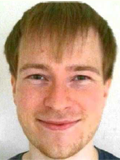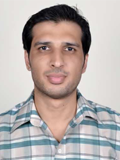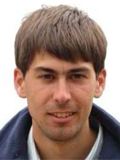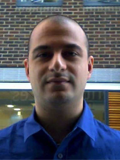 Tom Hill
Tom Hill
Tom Hill (Bristol) graduated in July 2012 with a first class BEng from the University of Bristol, and then completed an EPSRC funded PhD, also at the University of Bristol. During his PhD he developed methods to compute normal forms for complex multiple-degree-of-freedom nonlinear systems. From February 2015 he worked as an EPSRC-funded postdoctoral research with Prof. Simon Neild at the University of Bristol. He was awarded his PhD in January 2016. and is now employed as a lecturer at the University of Bristol.
David Hawes
David Hawes (Cambridge) graduated from the University of Cambridge with an MEng in 2012 before working as an engineering consultant for one year in the software group at Frazer-Nash
Consultancy. He then returned to Cambridge in October 2013 to study an EPSRC funded PhD. His research is in mechanical vibration theory applied to energy harvesting.
 Irfan Khan
Irfan Khan
Irfan Khan (Sheffield) received his BE degree in Mechatronics Engineering from National University of Sciences and Technology, Pakistan in May 2009, ans his Master Degree in Mechatronics
from American University of Sharjah in October 2013. During his master, he worked on nonlinear robust control and torsional vibration suppression in elastic drive systems. He started an EPSRC-funded PhD in November 2013, working on structural vibration suppression using hybrid active plus semi-active control.
Rick Lupton
Rick Lupton (Cambridge) was awarded his PhD in January 2015. He began in 2011 as an EPSRC DTA student with CASE support from Garrad Hassan and worked on the dynamics of wind turbines. He is now employed as a postdoctoral research associate at the University of Cambridge.
Luigi Simeone
Luigi Simeone (ISVR, Southampton) carried out an EPSRC-funded PhD in energy
harvesting using nonlinear control. The project has now developed a prototype
vibration based energy harvester. Luigi is now employed at Philips.